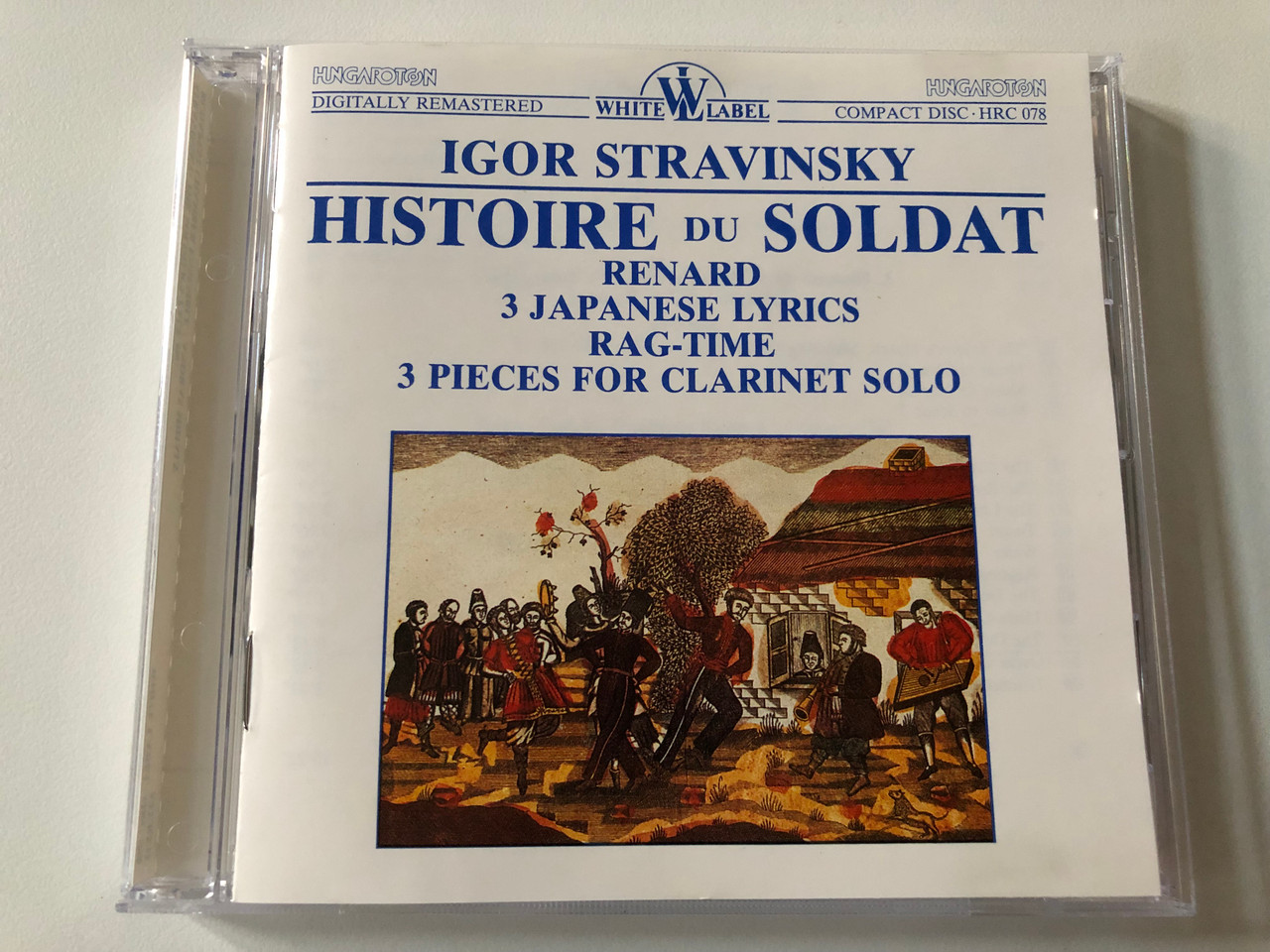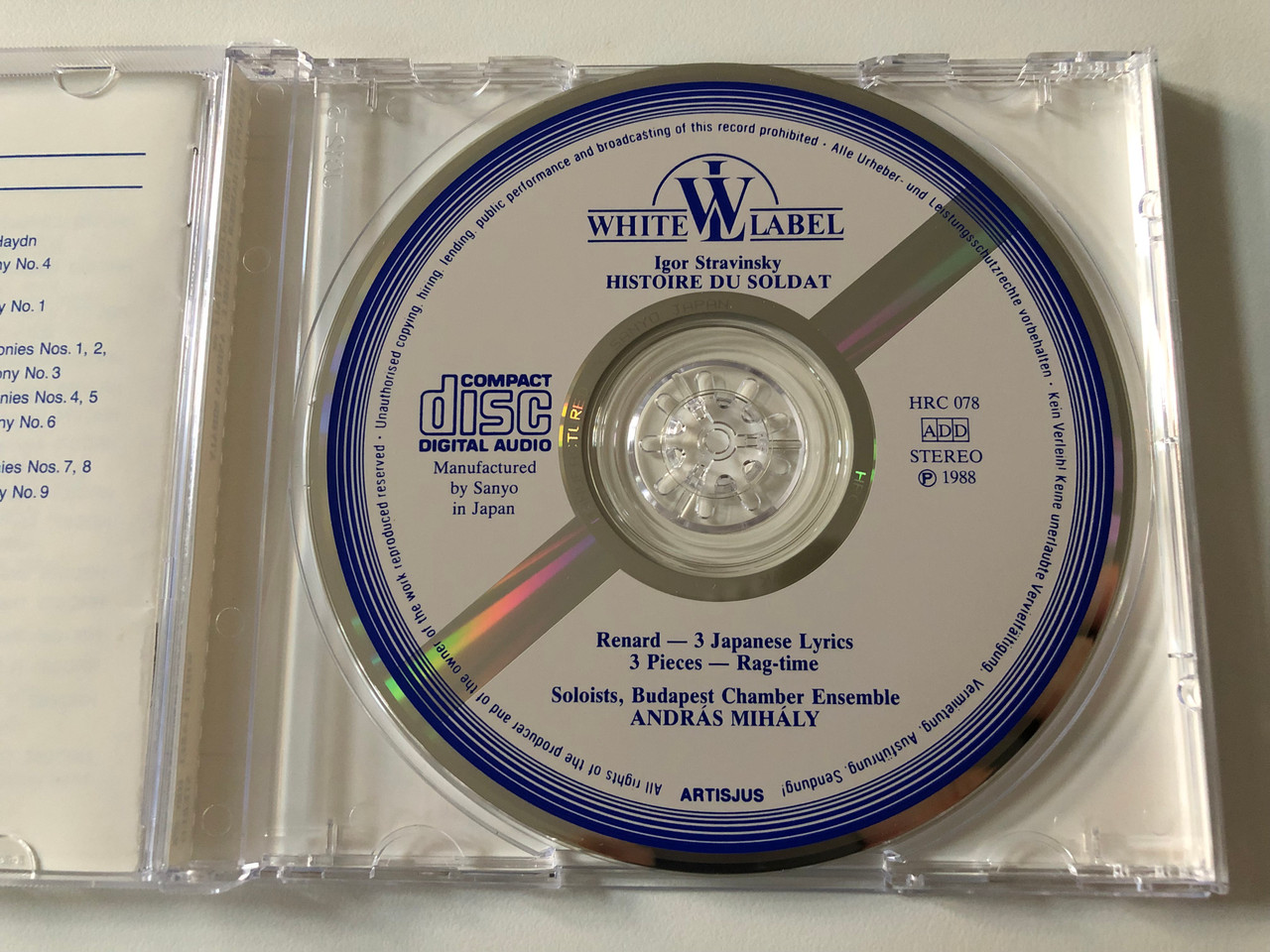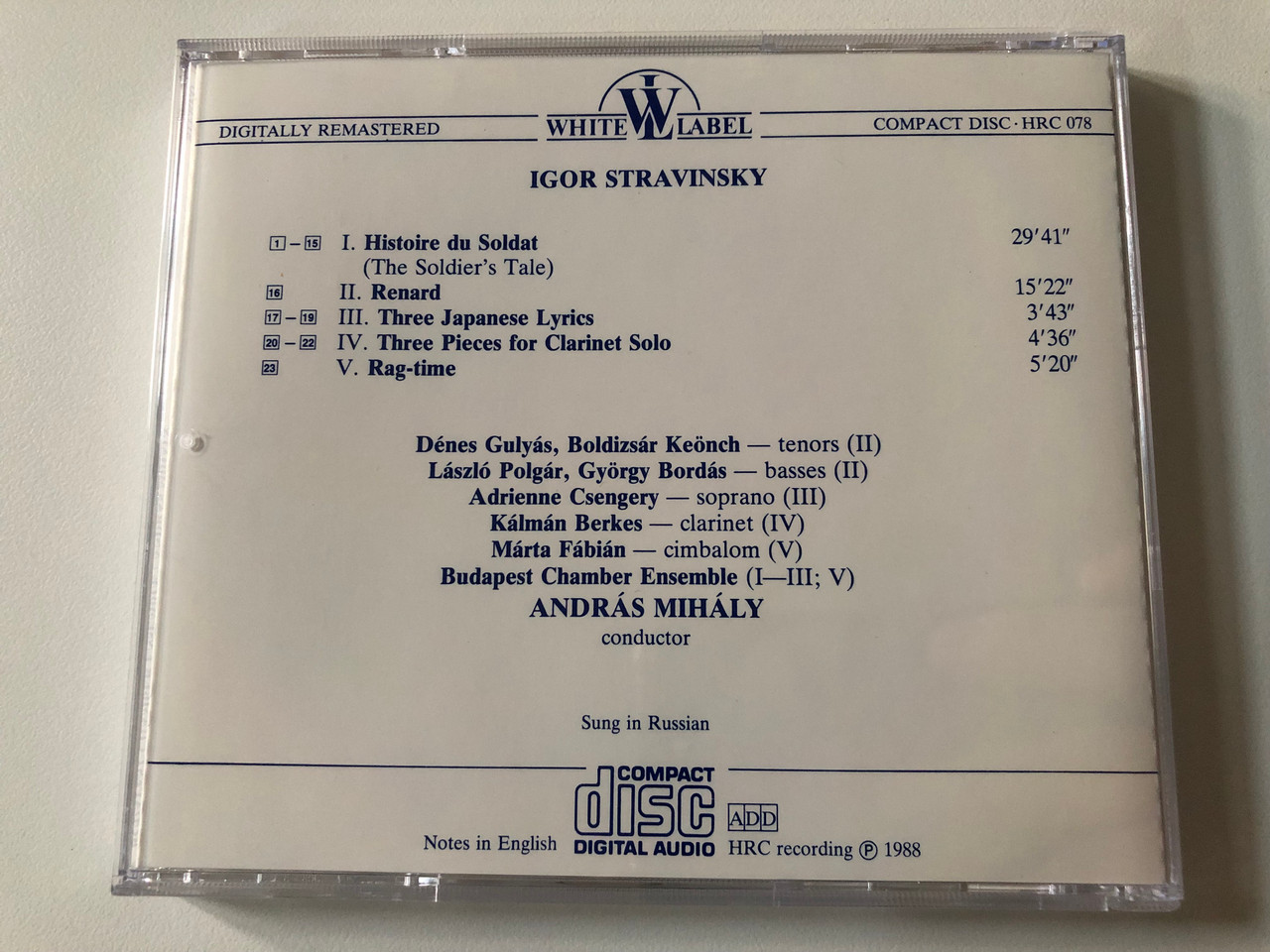Description
Igor Stravinsky - Histoire Du Soldat, Renard, Three Japanese Lyrics, Rag-time, 3 Pieces For Clarinet Solo / White Label / Hungaroton Audio CD 1988 Stereo
HRC 078
Sung in Russian (II, III)
HRC Recording (c) 1988
Denes Gulyas (tenor), Boldizsar Keonch (tenor), Gyorgy Bordas (baritone), Laszlo Polgar (bass), Adrienne Csengery (soprano), Kalman Berkes (clarinet), Marta Fabian (cimbalom)
Budapest Chamber Ensemble, Andras Mihaly
Igor Fyodorovich Stravinsky ComSE (17 June [O.S. 5 June] 1882 – 6 April 1971) was a Russian composer, pianist and conductor, later of French (from 1934) and American (from 1945) citizenship. He is widely considered one of the most important and influential composers of the 20th century.
Stravinsky's compositional career was notable for its stylistic diversity. He first achieved international fame with three ballets commissioned by the impresario Sergei Diaghilev and first performed in Paris by Diaghilev's Ballets Russes: The Firebird (1910), Petrushka (1911), and The Rite of Spring (1913). The last transformed the way in which subsequent composers thought about rhythmic structure and was largely responsible for Stravinsky's enduring reputation as a revolutionary who pushed the boundaries of musical design. His "Russian phase", which continued with works such as Renard, L'Histoire du soldat, and Les noces, was followed in the 1920s by a period in which he turned to neoclassicism. The works from this period tended to make use of traditional musical forms (concerto grosso, fugue, and symphony) and drew from earlier styles, especially those of the 18th century. In the 1950s, Stravinsky adopted serial procedures. His compositions of this period shared traits with examples of his earlier output: rhythmic energy, the construction of extended melodic ideas out of a few two- or three-note cells, and clarity of form and instrumentation.
Tracklist:
| I. Histoire Du Soldat (The Soldier's Tale) | |||
| 1 | The Soldier's Marc. Marching Tunes | 1:41 | |
| 2 | Music To Scene 1 | 2:38 | |
| 3 | Music To Scene 2 | 3:27 | |
| 4 | Music To Scene 3 | 0:47 | |
| 5 | The Soldier's Marc. Marching Tunes | 1:19 | |
| 6 | The Royal March | 2:37 | |
| 7 | The Little Concert | 2:58 | |
| 8 | Tango | 2:03 | |
| 9 | Waltz | 1:46 | |
| 10 | Ragtime | 2:10 | |
| 11 | The Devil's Dance | 1:17 | |
| 12 | Little Choral | 0:50 | |
| 13 | The Devil's Song | 0:42 | |
| 14 | Great Choral | 3:13 | |
| 15 | Triumphant March Of The Devil | 2:13 | |
|
II. |
|||
| 16 | Renard (The Fox) | 15:22 | |
|
III. Three Japanese Lyrics |
|||
| 17 | A) Akahito | 0:53 | |
| 18 | B) Mazatsumi | 1:01 | |
| 19 | C) Tsaraiuki | 1:49 | |
|
IV. Three Pieces For Clarinet Solo |
|||
| 20 | Sempre Piano E Molto Tranquillo | 2:07 | |
| 21 | (Without Tempo Indication) | 1:24 | |
| 22 | (Without Tempo Indication) | 1:49 | |
|
V. |
|||
| 23 | Rag-Time | 5:20 |
- Bass Vocals – György Bordás (tracks: 16), László Polgár (tracks: 16)
- Cimbalom – Márta Fábián (tracks: 23)
- Clarinet – Kálmán Berkes (tracks: 20-22)
- Composed By – Igor Stravinsky
- Conductor – András Mihály
- Design – Péter Nagy (3)
- Ensemble – Budapest Chamber Ensemble (tracks: 1-19, 23)
- Libretto By – C. F. Ramuz (tracks: 1-15)
- Soprano Vocals – Adrienne Csengery (tracks: 17-19)
- Tenor Vocals – Dénes Gulyás (tracks: 16), Boldizsár Keönch (tracks: 16)
































